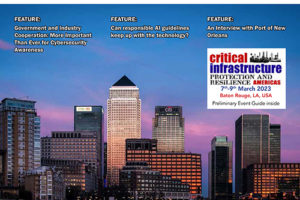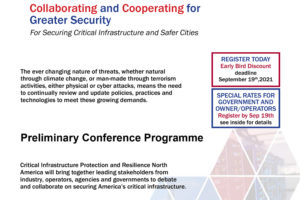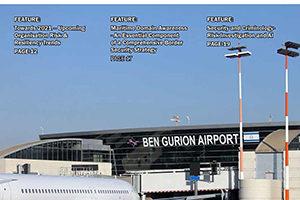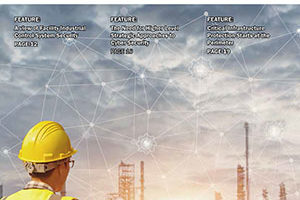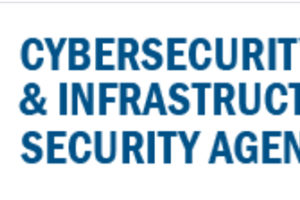
CISA and its partners, through the Joint Cyber Defense Collaborative, are responding to active, widespread exploitation of a critical remote code execution (RCE) vulnerability (CVE-2021-44228) in Apache’s Log4j software library, versions 2.0-beta9 to 2.14.1, known as "Log4Shell" and "Logjam." Log4j is very broadly used in a variety of consumer and enterprise services, websites, and applications—as well as in operational technology products—to log security and performance information. An unauthenticated remote actor could exploit this vulnerability to take control of an affected system.
Apache released Log4j version 2.15.0 in a security update to address the CVE-2021-44228 vulnerability. However, in order for the vulnerability to be remediated in products and services that use affected versions of Log4j, the maintainers of those products and services must implement this security update. Users of such products and services should refer to the vendors of these products/services for security updates. Given the severity of the vulnerability and the likelihood of an increase in exploitation by sophisticated cyber threat actors, CISA urges vendors and users to take the following actions.
Vendors
Immediately identify, mitigate, and patch affected products using Log4j.
Inform your end users of products that contain this vulnerability and strongly urge them to prioritize software updates.
Affected Organizations
In addition to the immediate actions—to (1) enumerate external-facing devices that have Log4j, (2) ensure your SOC actions alerts on these devices, and (3) install a WAF with rules that automatically update—as noted in the box above, review CISA's upcoming GitHub repository
for a list of affected vendor information and apply software updates as soon as they are available. See Actions for Organizations Running Products with Log4j below for additional guidance. Note: CISA has added CVE-2021-44228 to the Known Exploited Vulnerabilities Catalog, which was created according to Binding Operational Directive (BOD) 22-01: Reducing the Significant Risk of Known Exploited Vulnerabilities. In accordance with BOD 22-01, federal civilian executive branch agencies must mitigate CVE-2021-44228 by December 24, 2021.
Technical Details
This RCE vulnerability—affecting Apache’s Log4j library, versions 2.0-beta9 to 2.14.1—exists in the action the Java Naming and Directory Interface (JNDI) takes to resolve variables. According to the CVE-2021-44228 listing, affected versions of Log4j contain JNDI features—such as message lookup substitution—that "do not protect against adversary-controlled LDAP [Lightweight Directory Access Protocol] and other JNDI related endpoints."
An adversary can exploit this vulnerability by submitting a specially crafted request to a vulnerable system that causes that system to execute arbitrary code. The request allows the adversary to take full control over the system. The adversary can then steal information, launch ransomware, or conduct other malicious activity.
Actions for Organizations Running Products with Log4j
CISA recommends affected entities:
Review Apache’s Log4j Security Vulnerabilities page for additional information and, if appropriate, apply the provided workaround:
In releases >=2.10, this behavior can be mitigated by setting either the system property log4j2.formatMsgNoLookups or the environment variable LOG4J_FORMAT_MSG_NO_LOOKUPS to true.
For releases from 2.7 through 2.14.1 all PatternLayout patterns can be modified to specify the message converter as %m{nolookups} instead of just %m.
For releases from 2.0-beta9 to 2.7, the only mitigation is to remove the JndiLookup class from the classpath: zip -q -d log4j-core-*.jar org/apache/logging/log4j/core/lookup/JndiLookup.class.
Apply available patches immediately. See CISA's upcoming GitHub repository for known affected products and patch information.
Prioritize patching, starting with mission critical systems, internet-facing systems, and networked servers. Then prioritize patching other affected information technology and operational technology assets.
Until patches are applied, set log4j2.formatMsgNoLookups to true by adding -Dlog4j2.formatMsgNoLookups=True to the Java Virtual Machine command for starting your application. Note: this may impact the behavior of a system’s logging if it relies on Lookups for message formatting. Additionally, this mitigation will only work for versions 2.10 and above.
As stated above, BOD 22-01 directs federal civilian agencies to mitigate CVE-2021-44228 by December 24, 2021, as part of the Known Exploited Vulnerabilities Catalog.
Conduct a security review to determine if there is a security concern or compromise. The log files for any services using affected Log4j versions will contain user-controlled strings.
Consider reporting compromises immediately to CISA and the FBI.
.




